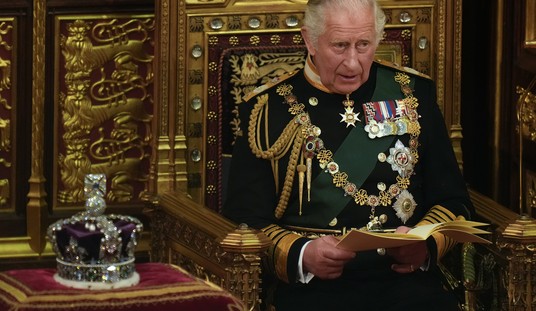At first blush, this report looks like common sense. After all, the Edward Snowden cache’s exposure of espionage and surveillance on our allies in Europe created no small amount of humiliation for all sides, and at least publicly, impacted our diplomatic and security relationships. A pause to determine the legitimate intelligence needs of the US, as opposed to a desire to just grab everything possible, makes sense under the circumstances — assuming it doesn’t blind us altogether to the issues in Europe.
That, however, might have been the result, at least according to Associated Press sources:
Under the stand-down order, case officers in Europe largely have been forbidden from undertaking “unilateral operations” such as meeting with sources they have recruited within allied governments. Such clandestine meetings are the bedrock of spying.
CIA officers are still allowed to meet with their counterparts in the host country’s intelligence service, conduct joint operations with host country services and conduct operations with the approval of the host government. Recently, unilateral operations targeting third country nationals — Russians in France, for example — were restarted. But most meetings with sources who are host nationals remain on hold, as do new recruitments.
The CIA declined to comment.
James Clapper, the U.S. director of national intelligence, said during a public event Thursday that the U.S. is assuming more risk because it has stopped spying on “specific targets,” though he didn’t spell out details.
Spying stand-downs are common after an operation is compromised, but “never this long or this deep,” said a former CIA official, who, like others interviewed for this story, spoke on condition of anonymity because it’s illegal to discuss classified material or activities. The pause, which has been in effect for about two months, was ordered by senior CIA officials through secret cables.
Needless to say, this is an odd time to go dark, and not just because of Russia and their own operations in Europe. The US needs to keep a close eye on the impact of ISIS in Europe, both in terms of recruitment to the battlegrounds of Syria and Iraq but also penetration into the governments of our allies. Assuming that ISIS isn’t attempting that kind of penetration may work out well in the short run while they’re desperate for fighters (and young women), but it won’t be long before the terrorists realize the value in having sympathizers burrow into the bureaucracies of the West, especially in national-security organizations.
The timing of this revelation is rather curious, too. James Clapper, the Director of National Intelligence, revealed earlier this week that the CIA missed significant signals in the rise of ISIS and in the collapse of Iraq’s military. In both cases, Clapper admitted, the CIA didn’t calculate the will to fight on either side properly:
The United States has made the same mistake in evaluating fighters from the Islamic State that it did in Vietnam — underestimating the enemy’s will, according to James Clapper, the director of national intelligence.
Clapper’s comments came in a telephone interview Wednesday, in which he summarized the elements of a new National Intelligence Strategyreleased this week. Clapper also answered some broader questions about intelligence issues confronting the country. …
“What we didn’t do was predict the will to fight. That’s always a problem. We didn’t do it in Vietnam. We underestimated the Viet Cong and the North Vietnamese and overestimated the will of the South Vietnamese. In this case, we underestimated ISIL [the Islamic State] and overestimated the fighting capability of the Iraqi army. . . . I didn’t see the collapse of the Iraqi security force in the north coming. I didn’t see that. It boils down to predicting the will to fight, which is an imponderable.”
It’s not that imponderable. Plenty of people warned over the last several years that an American withdrawal from Iraq would have a negative impact on Iraqi military morale. The abandonment of Sunni tribal leaders to the Shi’ite-dominant government of Nouri al-Maliki was also eminently “ponderable,” even while Barack Obama insisted that the Iraq we left behind was stable and secure. Maliki’s purge of Sunni military and political leaders wasn’t much of a secret, or at least shouldn’t have been to the CIA. The question is less of “imponderables” than of a determination to see the situation in Iraq only through the context of an Obama policy success, at least at the policy-developing levels of the intel community and the White House.
Given that DNI Clapper is now offering mea culpas about being blindsided on the capabilities of both friend and foe, this seems like a very odd — and bad — time to have the CIA closing its eyes even more.








Join the conversation as a VIP Member